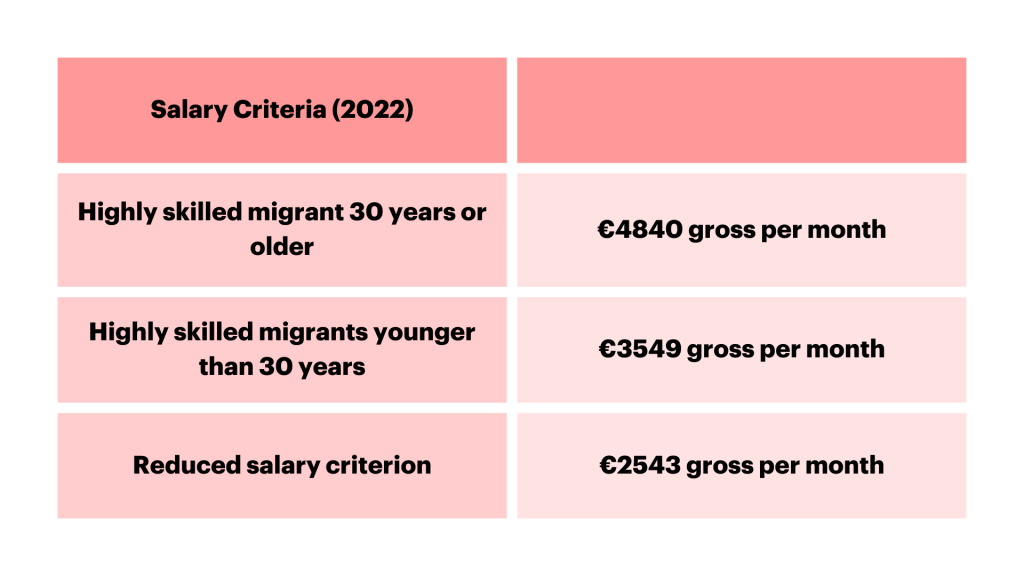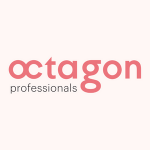
Moving to a new country is exciting – but planning the paperwork is absolutely not. Nonetheless, finding the right work visa for the Netherlands is one of the first steps you need to solve before the move!
Regardless of whether you’re planning to bring non-Dutch employees from abroad, or make the move to the Netherlands for work yourself, there are plenty of legal options that any hard-working foreigner can take advantage of.
In this article, we’re going to list all of the visas and residence permits the Netherlands offers to working professionals. Keep in mind that in order to apply for a work visa, you already need to have a job and company on your side to send information to the Immigration Department.
By providing an overview of the requirements and conditions of each visa, this article can be used as a resource by any HR team planning to hire non-Dutch or EU workers.
- Highly skilled migrant
- European blue card
- Intracorporate transferees
- Single permit
- Orientation year
- Self-employed residence permit
- Start-up residence permit
- Other visas
highly skilled migrant visa (kennismigrant)
The Highly Skilled Migrant is one of the more well-known visas for non-EU workers working in the Netherlands. This visa is most suitable for businesses seeking to hire employees from outside Europe in a non-entry level position. For a non-Dutch person to obtain this visa, both the business and the employee must fulfil certain requirements:
- The employee must NOT have an EU/EEA or Swiss nationality. This visa is only for non-EU people.
- Business must be registered as a Recognized Sponsor by the IND (or hires the employee through umbrella or professional employer services).
- The employment contract duration is long enough to qualify the employee for a provisional residence permit.
- Business must offer a GROSS salary (excluding holiday allowance) that meets the criteria below (See salary criteria 2022).

** The reduced salary criterion is applicable in circumstances such as:
– The Highly Skilled Migrant Visa has applied for the Residence Permit during the Orientation Year Visa and immediately follows this Visa.
For more information, visit the official website: https://business.gov.nl/regulation/employing-highly-skilled-migrants/
european blue card (europse blauwe kaart)
The European Blue Card is a European Union-wide initiative to enable highly skilled non-EU people to live and work in Europe. The European Blue Card contains similar – albeit stricter – requirements compared to the Dutch Highly Skilled Migrant visa.
The advantage of the European Blue Card is that it enables employees more flexibility in where they live in Europe. See the requirements of the Highly Skilled Migrant in the article above, and consider the following additional requirements:
- Employee has earned at least a Master’s degree (or foreign equivalent)*
- Business must offer an employment contract of at least one year
- Business must offer a salary of at least € 5,670 gross per month (excluding vacation pay)
For more information, visit the official website: https://ind.nl/en/work/working_in_the_Netherlands/Pages/EU-blue-card-holder.aspx
*It may be possible for your foreign degree to satisfy this requirement, even if it’s not a Master’s degree. You can find out more about your foreign degree here: https://www.nuffic.nl/en/subjects/diploma/education-systems
intra corporate transferees
Businesses that operate globally may need to transfer their employees to different branches around the world. An intra- corporate transferee is an employee with a non-EU nationality who needs to move to the Netherlands for living and work.
Thanks to the Intra EU-mobility framework, the employee will also be able to move from an EU Member State branch to another, except for The UK, Denmark, and Ireland. Here are some conditions that the employee needs to fulfil before the application:
- Employee is currently employed with a business established outside the EU
- Employee is essential to the operations of the Dutch branch, OR;
- Employee is a trainee (Master’s degree required)
- Business must offer a GROSS salary (excluding holiday allowance) that meets the criteria of the Highly Skilled Migrant
For more information, visit the official website: https://ind.nl/en/work/working_in_the_Netherlands/Pages/Intra-Corporate-Transferees.aspx
Single permit (GVVA)
The Single permit, also called GVVA (in Dutch) is a combination of a work and residence permit. This permit is intended for workers coming from outside EU/EEA and Switzerland planning to stay in the Netherlands for a minimum of 3 months and do not necessarily meet the criteria of a “Highly skilled migrant”.
As a business planning to utilize this permit, there are a few requirements about the position employers must fulfil.
- Job vacancy must remain open and advertised for at least 5 weeks before applying.
- Business is a recognized sponsor (or hires the employee through umbrella or professional employer services).
- The employee must earn an amount that is at least equal to the minimum wage (excluding holiday pay).
Certain groups of people do not need to apply for this permit, because there are other permits available to their situation: students, asylum seekers, employees transferred within a multinational group, workers on temporary projects, and Croatian citizens. These people must request a work permit and a residence permit separately.
Here are a few examples of professions that may apply for a Single Permit Visa:
- Trainee or apprentice
- Cooks or chefs
- Arts and entertainment professionals
- Spiritual counselors or monks
- Staff of non-profit organizations
- Professional sportspeople/athletes
- Seasonal workers
For more information, visit the official website: https://ind.nl/en/work/working_in_the_Netherlands/Pages/Paid-employment.aspx
orientation year visa (zoekjaar visa)
The Orientation Year Visa is addressed to all young graduates or Ph.D. holders that have completed a diploma or done scientific research in the previous 3 years and are willing to look for a job in the Netherlands. The ones who obtain the visa are allowed to live and work in the Netherlands for a period of 12 months. Individuals may apply for this visa themselves and do not require an employment contract.
To qualify for the Orientation Year Visa, the applicant needs to fulfill one of these conditions in the Netherlands:
- completed a bachelor’s or master’s program
- complete at least one year of a post-master’s program
- completed a master’s degree in an Erasmus Masters course
- conducted scientific research or obtained a PhD
It is also possible to apply for the Orientation Year visa without ever living in the Netherlands beforehand if you hold a Master’s degree from one of the Top 200 Universities (view the ranking for 2022 here).
When the Orientation Year Visa expires, the applicant can apply for a Highly Skilled Migrant Visa, if s/he fulfills the requirements requested by the IND. This option can be very interesting for the employer, indeed if the employee has been previously on an Orientation Year Visa, a reduced salary criterion can be applied.
residence permit as a self-employed person (zelfstandig ondernemer)
Entrepreneurs can also apply for a residence permit if they intend to work for themselves.
The Self-Employed permit is ideal for individuals who would like to work as a freelancer, practice a profession, or invest in a business in the Netherlands. Directors and shareholders who account for more than 25% interest in the company are also considered “entrepreneurs” and are encouraged to apply for a residence permit under this program. This permit is valid for up to two years and can be extended.
The Netherlands Enterprise Agency (RVO), a division of the Dutch Ministry of Economic Affairs will use a point-based system to determine whether your business activities are innovative and have a foreseeable positive effect on Dutch economy. This will be measured through three different criteria:
- Personal Experience: The applicant is required to hand in documentation such as proof of educational and professional qualifications, experience within working within the Netherlands, and proof of income over the past twelve months.
- Business Plan: Details about your business is the most important aspect in applying for a residence permit as an entrepreneur. The company data should include organizational structure, financial and commercial plan, legal aspects, and the analysis of market potential.
- Added value to the Dutch economy: For this criteria, you must be able to show that you have an original business idea that is different from anything else on the Dutch market as well as has a potential for growth. Employment opportunities and investments should be demonstrated to be realized within 1 to 1,5 years.
The maximum number of points is 300. For each criterion, the applicant should score at least 30 points to be eligible for approval.
For freelancers: You must additionally prove that you have at least one commissioned work assignment to work on in the Netherlands.
For healthcare practitioners: You are registered in the BIG-register (Individual Healthcare Professions).
Source: https://ind.nl/en/work/working_in_the_Netherlands/Pages/Self-employed-person.aspx
residence permit as a start-up (verblijfsvergunning voor start-up)
Residence Permit as Start-up grants entrepreneurial applicants one preparatory year to get their companies up and running. This visa allows entrepreneurs to spend more time on developing their business to meet the requirements of a Self-Employed visa. This visa can only be issued if your product or service is considered innovative and endorsed by an experienced “facilitator” based in the Netherlands. This facilitator is a business mentor, who would have an in-depth look into your business plan and provide support for your start-up depending on specific needs.
To qualify for a start-up residence permit, the following requirements must be fulfilled:
- Your new business is innovative, viable, and scalable.
- You must collaborate with a reliable and experienced facilitator. You can find a facilitator who is focused on your industry or type of company by checking RVO website.
- You must have a step-by-step plan to set up your business from the original idea.
- You and your facilitator are registered in the Trade Register of the Chamber of Commerce (KvK).
- You must have sufficient financial resources to reside and live in the Netherlands for one year. In order to, prove this, a bank statement or proof of funding from another legal body (i.e. the facilitator) for your entire stay can be submitted.
In terms of partnering with a facilitator, there are certain conditions to take into consideration:
- The facilitator has experience in guiding innovative start-ups
- They are financially sound
- There is no case in receivership or bankrupt nor have negative equity
- They do not have a majority interest in the start-up company
- Cannot be a family member of the entrepreneur. This applies up to the third degree: child, parent, grandparent, aunt/uncle
Moreover, the start-up entrepreneur will need a business plan and will have to prove that his/her product or service is innovative and that he has enough financial resources to live decently during the whole duration of the permit, without receiving any benefits from the public funds.
Furthermore, both the start-up entrepreneur and the facilitator will need to be registered in the Trade Register of the Chamber of Commerce.
Source: https://ind.nl/en/work/working_in_the_Netherlands/Pages/Start-up.aspx
Other visas
If none of the visas mentioned in this article fit your case – don’t worry. There are other visas applicable for non-EU nationals to live in the Netherlands that don’t depend on an employer, for example as a partner or spouse of a worker.
Likewise, you can still apply for a residence permit if you would like to work as:
- a mass media correspondent
- a researcher
For more information about Dutch visas and their requirements, visit the IND website: https://ind.nl/en.
more news

King’s Day: what you need to know
22-04-25
Spring has sprung, and the traditional Dutch holiday of ‘King’s Day’ is approaching! King’s Day is April 26th this year. If you don’t know what you should be doing to make the most out of this holiday, then you are ...

The role of HR in supporting neurodiversity in the workplace
16-04-25
In the spirit of Autism awareness month, it is important to bring awareness to the neurodiverse person in the workplace. After all, the workplace as it is today was built for the neurotypical in mind, putting neurodiverse people at a ...
